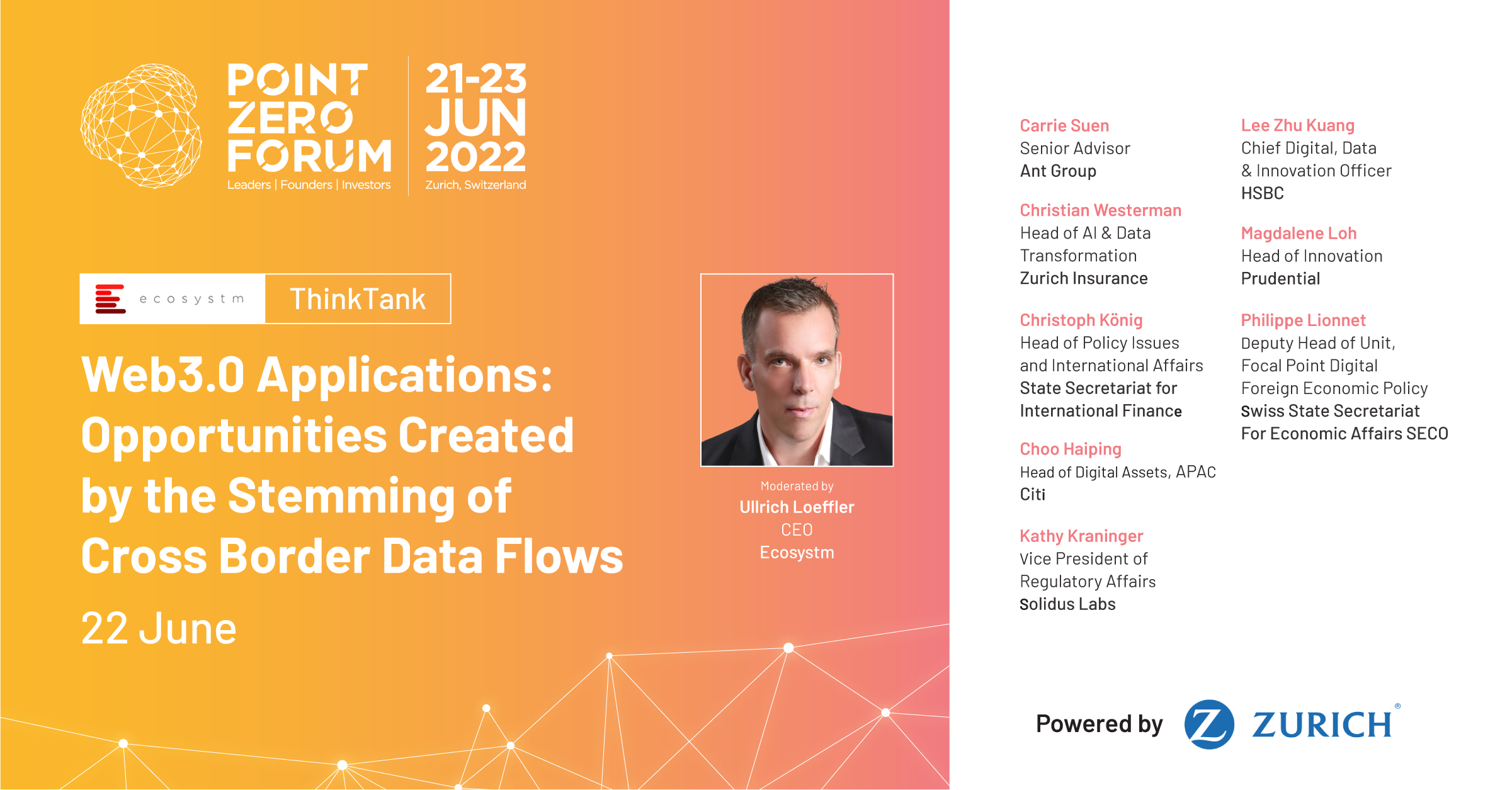Ecosystm, supported by their partner Zurich Insurance, conducted an invitation-only Executive ThinkTank at the Point Zero Forum in Zurich, earlier this year. A select group of regulators, investors, and senior executives from financial institutions from across the globe came together to share their insights and experiences on the critical role data is playing in a digital economy, and the concrete actions that governments and businesses can take to allow a free flow of data that will help create a global data economy.
Here are the key takeaways from the ThinkTank.
- Bilateral Agreements for Transparency. Trade agreements play an important role in developing standards that ensure transparency across objective criteria. This builds the foundation for cross-border privacy and data protection measures, in alignment with local legislations.
- Building Trust is Crucial. Privacy and private data are defined differently across countries. One of the first steps is to establish common standards for opening up the APIs. This starts with building trust in common data platforms and establishing some standards and interoperability arrangements.
- Consumers Can Influence Cross-Border Data Exchange. Organisations should continue to actively lobby to change regulator perspectives on data exchange. But, the real impact will be created when consumers come into the conversation – as they are the ones who will miss out on access to global and uniform services due to restrictions in cross-country data sharing.
Read below to find out more.
Click here to download “Opportunities Created by Cross Border Data Flows” as a PDF

A partner event of our annual flagship Singapore FinTech Festival, Point Zero Forum represents a unique collaboration between Elevandi (an entity set up by MAS), and the Swiss Secretariat for International Finance (SIF), organised in cooperation with the BIS Innovation Hub, Monetary Authority of Singapore, and Swiss National Bank. The inaugural Forum will be graced by Singapore’s Deputy Prime Minister, Heng Swee Keat, Switzerland’s Federal Councillor and the Head of the Federal Department of Finance, Ueli Maurer, as well as leading CEOs (UBS, Julius Baer, Six Group); and innovative founders (FTX Group, wefox). The Forum will serve as the starting point for engaging investors and policymakers with innovators to advance the future of financial services (FOFS).
This invite-only forum aims to bring together investors, influencers, thinkers and decision-makers from the public and private sector to exchange ideas, share knowledge, develop a network, with the purpose of:
- Developing new ideas to advance the FOFS – decentralised finance and Web 3.0, embedded finance and sustainable finance.
- Driving investment activity by bringing together leading founders with VCs, private banking clients, family offices and PE houses
- Dissecting regulatory considerations related to each FOFS development by bringing together public and private sector leaders
Three days of in-depth plenary sessions, deep-dive private roundtables and workshops, and exclusive sessions will focus on significant new market opportunities built on Web 3.0 architecture (June 22) – Tokenisation (June 23) and Sustainable Finance (June 23).
Ecosystm ThinkTank: Web 3.0 Applications: Opportunities Created by the Stemming of Cross Border Data Flows is a moderated, closed door and confidential dialogue for a very limited number of hand-selected participants.
Data is a critical component of the digital economy. Driven by the rise in global technology platforms and the continuing digitalisation of economies and industries, data will become even more critical to organisations and governments. However, regulatory barriers – due to concerns around data privacy and security, economic and competitive protection, and other geopolitical concerns – have the potential to hinder the free flow of data that will power future economic growth.
Join us for this important discussion where we will explore:
- How a global data architecture can become a reality
- The concrete actions that governments and businesses can take to contribute to a global data economy
- The importance of initiatives such as the Switzerland and Singapore framework for cross-border financial data flow, that was announced last month












